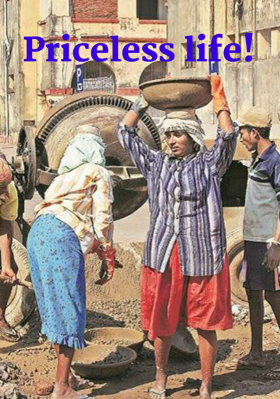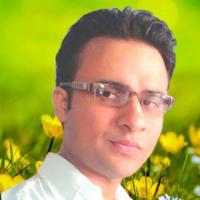The Last Day
The Last Day


He scanned his desk thoroughly, making sure that none of his personal belongings were left on it. He placed all of the equipment back in its place. He checked the file of the deceased for the umpteenth time, carefully going through his mental checklist. He couldn’t make any mistakes today, for he wouldn’t be here tomorrow. When he was finally satisfied, he pulled the white cloth over the face of the corpse lying in front of him; a symbolic closure of his career in analyzing dead bodies.
Today was his last day at work, a culmination of over three decades of service.
He scanned the empty forensic lab, not a single soul in sight. Just as he had wanted. He had sternly ordered his assistants to not throw any retirement party for him, and, knowing his temper, they were more than happy to oblige. He wanted the day for himself, the lab to himself, to soak in the place that had defined him for more than half his life.
He was staring at the pictures on the wall now. Anatomical drawings, charts, ballistic trajectories, and faces of the deceased. He recognized a few of those, on whom he had performed autopsies. Didn’t remember much about them now. Didn’t remember anything actually, not even their names. But remembered their faces. Only their faces. And the serene, tranquil expression on them.
That’s the beauty of death. It is the greatest equaliser. No matter whether rich or poor, strong or weak, young or old, they all look the same when lying naked on the coroner’s table. That’s not to say they die similar deaths. Some die of cardiac arrest, some wear a crimson mask, and some leave in their sleep, like the one he had just assessed.
The ones like these were the most common causes. People dying a peaceful death. But then, these were also the kind of cases that bored him, because most of the time there was nothing to look into.
The suspicious deaths were what teased his brain. Where there were more questions than answers, and the cops had a befuddled frown on their foreheads. He longed for cases like these. The high-pressure situations, the outside-the-box thinking, the working odd hours because a new piece of information had come all of a sudden.
He sighed. He would never get an opportunity to work on another one of those thrillers.
He had not wanted to retire. Had even filed an application to his superiors, asking them to extend his working years, citing some of his best works. However, the response had not been positive. While the brass appreciated what he did, they felt he had earned his retirement and wanted him to live the rest of his life without any work-related pressure.
That’s what they had told him. But he knew the real reason: He was simply no match for the young crop of forensic specialists, who were all faster, fitter, and smarter than him. Probably not smarter, eh? Well, definitely smarter as far as using technology was concerned.
Machines had taken over the brunt of the workload now. While the young ones were quick to understand any new system, he had trouble even typing out a mail on his computer, searching for letters on his keyboard with his spectacles close to his eyes. The letter ‘C’ was a magnificent bastard in this regard. No matter how many times he used it, he could never locate it the next time. He could almost swear that it could move, and it moved only when he required its services.
He almost hoped that this last case was not a regulation one, that there was some brilliant way that the murder had been committed, making it look like a peaceful death. He would figure it out, present it to his superiors, and prove once and for all that technology was no substitute for old-school intuition and attention to detail. But alas, this was as clear-cut as they came.
The previous day, his superiors and various policemen that he had worked with had come to his lab to wish him well for his next innings. At that point, he still had a flicker of hope that maybe he could still salvage his job, but now even that flicker had been extinguished.
His eyes darted towards a plaque near the edge of the wall. The plaque had the names of all doctors who had served before him, along with their first and last dates of service. Soon, his own name and dates would be imprinted on it. He could recognise a few names, some of whom had mentored him when he had started. He wondered if anyone would remember him decades from now, or would he end up as just another array of alphanumeric characters, like the vast majority of names on the plaque.
He had seen a lot of his peers -- cops and doctors alike -- retire. Only to breathe their last mere months later. For most of them, their jobs had defined who they were, and once they were separated from their identity, their will to live had dwindled. He had attended their funerals; had seen their wives, their children shocked at their untimely demise. They were unable to figure out why a man who had just celebrated his retirement had died out of nowhere, but he could. Standing in another man’s grave, he empathized with his fallen brethren, and, in equal amounts, dreaded the day his own identity would be stripped away from him.
Today was that day.
He had always been fascinated with corpses. He could put himself in their shoes, and imagine their actions near their deaths. This imagination was what dictated his analysis when the case was not mundane. It was this imagination that had helped him open cases which were considered dead on arrival and made him a pioneer in his field. And yet, all that success hadn’t been enough to give him even a few more years of service. He had spent more time with the dead than with the living, but all that experience looked wasted now.
Spent more time with the dead than with the living…
A repressed memory tapped on his forehead. The memory of his family, or rather, what once was his family. A wife and a daughter. He couldn’t even remember their faces now. How long ago was this? A decade, no, twenty years at the very least.
He did not remember their faces, but he remembered how happy he was on the day of his marriage, and on the day of his daughter’s birth. He did not remember the dates, but he remembered the emotions. Unfortunately, he also remembered how everything came crashing down.
As he climbed up the ladder of success, his work-related responsibilities increased. He kept missing birthdays, anniversaries, and date nights on account of “urgent work”, and in his field, “urgent work” came a dime a dozen. Rebukes turned into arguments, and arguments into fights, till his wife decided that she did not want to live with a man for whom family was a second priority.
He reasoned that the late nights and weekends he was working were for them, but deep down, he knew that post-mortem analysis was not just his occupation, but an obsession. His wife had probably realised this too, which is why her final words to him had been, “You spend more time with the dead than with the living.”
He hadn’t tried getting the custody of his daughter, knowing very well that his job wouldn’t allow him to be a dedicated parent. He would meet with her regularly though, twice a week if time permitted, he had reasoned then. But Father Time had not granted permission, and it had been years since he had last seen her. She would be an adult now, an adult with a job, and probably even kids of her own. He hoped his genetics had not transferred to her; hoped she hadn’t chosen the line of work to which her father had been addicted. He didn’t want her to spend more time with the dead than with the living.
Damn! How did these memories come to him today? He hadn’t reminisced about his erstwhile family for a long time now, then why today, of all days? He did not know the answer to that. Maybe he would have if he had spent more time with the living. But he hadn’t, and now, he would probably get these answers on his deathbed.
They say that in your final moments, your entire life plays in your mind like a movie. If it were true, he would like nothing more than to see his wife and his daughter one final time, to see the faces he once, and perhaps still, loved.
Only if he could go back in time…
But if he could, would he change anything? Would he swap his job for his family? He knew he would want to. But would he be able to quit and take up another job? Any other?
He shook his head as a wry smile formed on his lips.
The striking wall clock brought him back to reality. It was time to go now. He removed his glasses, wiped off a tear, and zipped his backpack. Took one cursory look at his desk, then another, longer one at the lab. His eyes were watery again.
For a second, he contemplated going to the other labs and greeting everyone with a final goodbye. But the thought went away as soon as it came. He didn’t feel like meeting anyone, not in this state, anyway. And this building, which he had considered home for well over three decades, had started to suffocate him now.
How could he experience so many different emotions about one place? Disappointment, nostalgia, hatred, love. The place that gave him everything, but also took away everything. Which of the infinities was larger, he couldn’t tell. But this place had been a major part of his life, and from today, that part would cease to exist.
He picked up his bag and started walking briskly. Two flights of stairs and he was out. He waved the watchman a final goodbye. The poor guy probably sensed something was off, and he started coming toward him, forcing him to increase his pace.
He kept walking, even faster now. Did not want to look at the building again. He knew he would completely break down crying if he did. So many years spent. Gave everything. And now, he wasn’t needed anymore. Not here. Nor at his home. Not needed to the dead, nor to the living.
“Sir, is everything alright?” he could hear a faint voice in the distance.
Did not respond. Kept walking.
Did not look back. Kept walking.
Couldn’t control himself.
Looked back.
Damn it.
Shouldn’t have.
THE END





























































